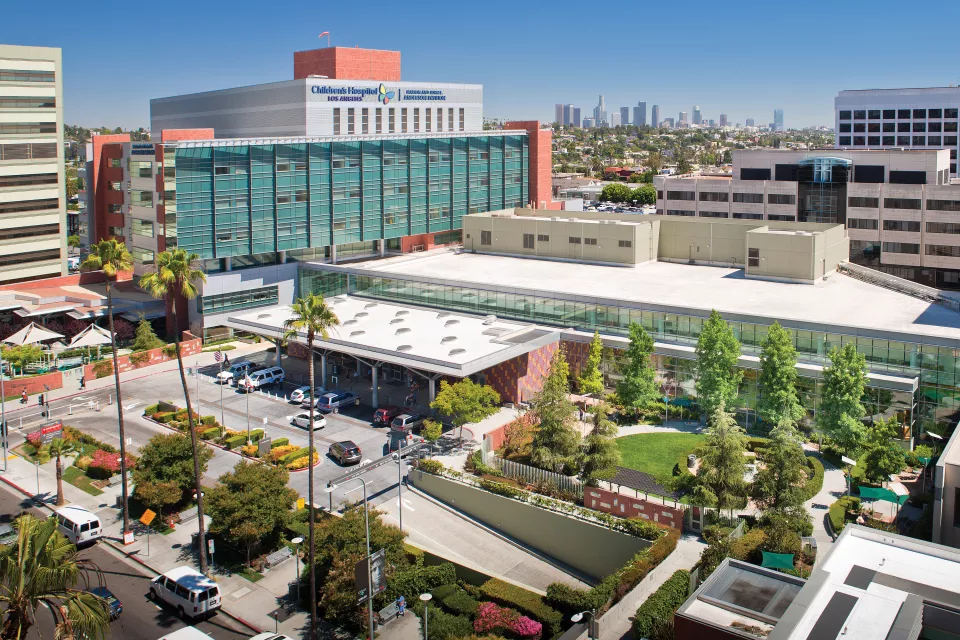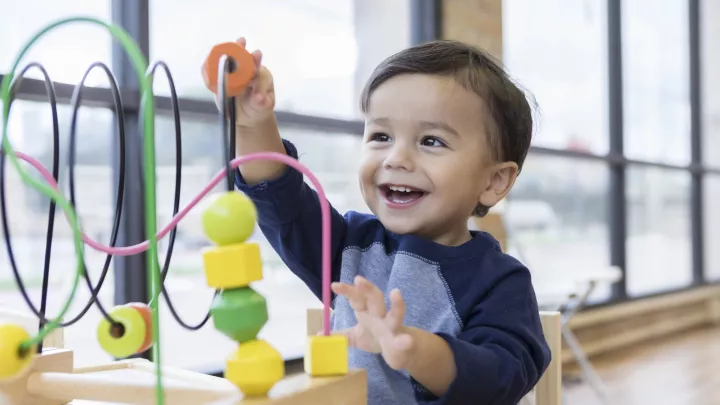The Program in Developmental Neurogenetics, recently merged with the Program in Developmental Neuroscience, is now known as Developmental Neuroscience and Neurogenetics Program (DNNP) and serves as an independent program of the CHLA research enterprise. With current endowment funds for supporting the program director from the Simms/Mann Foundation (Simms/Mann Chair), the DNNP brings a broader mission of discovery science integrated with clinical research on the interaction of early environments with genetics to build whole child healthy outcomes. The DNNP believes that development forms the strong or weak foundation for lifelong physical and mental health outcomes. We work in an integrated fashion with other programs at CHLA and USC to strategically plan and implement a research agenda:
- Discover the genetic and environmental bases for neurodevelopmentally based disorders
- Determine the factors that increase resilience for positive physical and mental health
- Translate research discoveries to develop new intervention and treatment strategies.
The DNNP is a discovery program that is working with the Neurological Institute, led by CHLA divisions of Neurosurgery and Neurology, to build an interactive clinical-translational program. The DNNP also take the lead at CHLA to develop a trans-institutional collaborative research effort to integrate the developmental roots of lifespan health.
A four-pronged approach listed below is designed to accomplish these goals.
Recruitment
Recruitment of outstanding new faculty to the DNNP that have a proven track record of translational science in the discovery of genetic variation and environmental factors pre- and postnatally that underlie neurodevelopmentally based disorders and the influence of environmental factors which, when combined with genetic risk, impact brain development. New faculty will be particularly accomplished in big data science and prenatal-perinatal biology, a time of influence by many non-heritable risk factors. The recruitment are focusing on bringing in faculty with complement research efforts to promote multidisciplinary research that address the prevalent co-morbidities of brain and peripheral organ medical and behavioral challenges. Part of the charge of faculty in the program is to learn how to use effective communication skills to convey research discoveries and the opportunities for innovation and translation that contribute to a continuing vibrant research community.
Young Scholars Program
The DNNP Young Scholars Program aims to attract the best and brightest minds pursuing PhD, MD, MD/PhD or clinical research fellows training, in collaboration with the Neurogenetic Institute, to advance our science and training efforts on neurodevelopmental disorders. There is no question that for any research venture, success comes by having THE most talented group of people working towards a common goal. Our faculty are competing nationally for the most outstanding young scholars who bring an unabashed, ‘outside the box’ approach to the challenges of pediatric brain disorders and have the potential to become the future leaders of research and clinical treatment. The Young Scholars Program aims to provide clinician-scientists and scientists with the resources necessary to bring these trainees to CHLA, immerse them in an intense clinical and research training experiences, and developing communication and mentoring skills through the CHLA Training, Education Career Planning and Development (TECPAD) program, and ultimately afford these trainees with opportunities to secure their own research scholar funding.
Innovation Incubator
The DNNP Innovation Incubator provides pilot funds for innovative research to be launched in the DNNP. Projects include the development of trans-institutional research collaborations, such as i) building a risk cohort at CHLA, Hollywood Presbyterian Hospital and Cedars Sinai Fetal-Maternal Medicine and OB-GYN programs, ii) build biomedical data science with USC in order to mine the large clinical and research databases. Innovation in the DNNP is the most valuable currency. Grant dollars from the National Institutes of Health and private foundations funds today’s research but has become immensely more challenging to secure. Competition is at its most severe, yet technical advances in measuring brain function, metabolism, stress, rhythm biology and other metrics through non-invasive approaches provide the promise of meeting our mission more rapidly than ever before. Our clinician-scientists and scientists need the resources to bring the next great idea to the bench. This takes resources that currently are available at our competitive institutions. Thus, to make a real difference, DNNP investigators need funds to seed research opportunities that have high probability of being the highest impact. These ideas typically are risky, making it difficult to secure grants from funding agencies. The Discovery Grant Program will provide pilot support to investigators to build research opportunities in order to obtain the necessary pilot research findings to compete for the larger grants that will sustain the efforts of member laboratories. These types of investments have an enormous payoff, as they often provide a $25-30 return on investment (ROI) in outside grant funds for each dollar devoted to the Discovery program.
Training and Education
DNNP Training and Education organizes and sponsors a bi-weekly journal club at which attendees discuss a current peer-reviewed journal research article, a monthly Early Adversity Basic and Clinical Research Discussion Group, at which clinicians, clinician-scientists and scientists identify and discuss a specific topic that informs the design and implementation of model studies and clinical research, and a monthly DNNP meeting at which faculty and trainees have the opportunity to present their latest research findings, and address technical and analytical challenges for which group input is sought.


